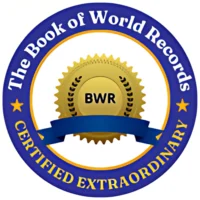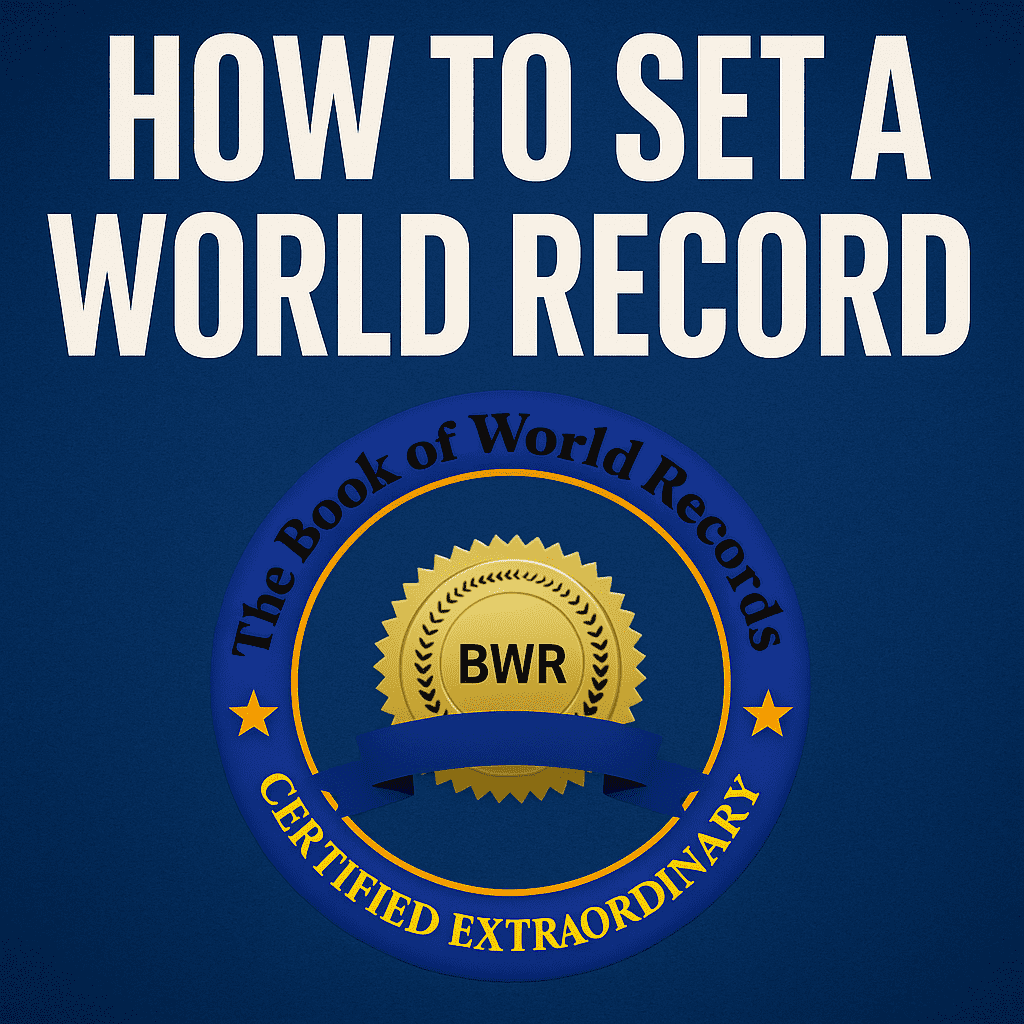World records have always captured the imagination of people across generations. From the fastest runners to the tallest buildings, record-breaking achievements symbolize human ambition, determination, and innovation. Throughout history, people have sought to push the limits of what is possible, and today, organizations like The Book of World Records officially recognize and document these extraordinary feats.
In this blog, we will take a deep dive into the fascinating history of world record breaking, exploring how the concept evolved, some of the most iconic records in history, and how record-keeping organizations like The Book of World Records continue to celebrate human excellence.
The Origins of World Record Keeping
The idea of recording extraordinary achievements dates back to ancient civilizations. Early societies documented remarkable feats in art, architecture, sports, and human endurance.
1. Ancient Record Keeping
- The ancient Egyptians meticulously recorded impressive engineering feats, such as the construction of the Great Pyramid of Giza, which held the record as the tallest structure in the world for over 3,800 years.
- The ancient Greeks honored athletic excellence through the Olympic Games, where champions were celebrated for their unmatched strength and speed.
- The Roman Empire documented military victories and architectural marvels, such as the Colosseum, which was the largest amphitheater of its time.
These early records were often maintained on stone tablets, scrolls, or inscriptions on monuments.
2. Medieval and Renaissance Achievements
During the medieval period, explorers, inventors, and scholars began setting new records in navigation, science, and the arts.
- Marco Polo’s travels to Asia introduced Europe to new cultures and distant lands, pushing the limits of exploration.
- Leonardo da Vinci’s inventions and sketches demonstrated unparalleled genius, setting intellectual benchmarks.
- The Renaissance era saw the construction of massive cathedrals, such as St. Peter’s Basilica, which became architectural marvels of their time.
While there was no formal record-keeping organization during this period, achievements were chronicled in books, letters, and historical documents.
The Birth of Modern World Records
The concept of official world records began to take shape in the 19th and early 20th centuries as societies became more interconnected through industrialization, global travel, and communication advancements.
1. The Rise of Competitive Sports
- The first modern Olympic Games were held in 1896, reintroducing the tradition of celebrating human athleticism and establishing official records in sports.
- Organizations like FIFA (founded in 1904) and the International Association of Athletics Federations (IAAF, now World Athletics) began standardizing records in football, track and field, and other sports.
2. Scientific and Technological Breakthroughs
The early 20th century saw incredible advancements in aviation, space exploration, and engineering.
- The Wright brothers’ first flight in 1903 set the foundation for record-breaking achievements in aviation.
- The race to the Moon culminated in the Apollo 11 mission in 1969, marking the first time humans set foot on another celestial body.
- The world’s tallest buildings continued to break records, from the Empire State Building (1931) to the Burj Khalifa (2010).
As the world became more fascinated with records, there was a need for an official authority to validate and maintain records across various fields.
The Establishment of Official Record-Keeping Organizations
1. The Birth of The Book of World Records and Similar Organizations
Recognizing the public’s growing interest in extraordinary achievements, organizations like The Book of World Records were established to document, verify, and certify record-breaking feats.
The goal of The Book of World Records is to maintain a reliable and authoritative record of human and natural world achievements. The organization ensures that records meet specific criteria:
- They must be measurable and quantifiable.
- They must be breakable or repeatable.
- They must be verified through credible documentation and witnesses.
Over time, The Book of World Records has expanded to include records in various categories, such as sports, science, entertainment, food, and endurance.
2. The Digital Age and Global Accessibility
With the rise of the internet and digital media, record-keeping has become more transparent and accessible.
- Record attempts can now be live-streamed for real-time verification.
- Social media platforms allow record holders to share their achievements with a global audience instantly.
- Digital archives make it easier to store, retrieve, and update records.
Today, The Book of World Records continues to embrace technology, making the process of record application and verification faster and more interactive.
Iconic World Records in History
Now, let’s take a look at some of the most remarkable world records that have captivated audiences worldwide.
1. Fastest Human
- Usain Bolt set the world record for the 100m sprint at 9.58 seconds in 2009, a feat that has yet to be broken.
2. Deepest Ocean Dive
- Victor Vescovo reached the deepest point of the ocean, the Mariana Trench, at a depth of 10,927 meters in 2019.
3. Longest Time in Space
- Russian cosmonaut Valeri Polyakov spent 437 consecutive days in space aboard the Mir space station.
4. Largest Human Gathering
- The Kumbh Mela in India holds the record for the largest human gathering, with over 75 million attendees in 2013.
5. Tallest Building in the World
- The Burj Khalifa in Dubai stands at 828 meters (2,717 feet), making it the tallest man-made structure ever built.
The Future of World Record Breaking
The pursuit of world records continues to evolve as technology and human capabilities expand. Some exciting trends include:
1. Space Exploration and Interplanetary Records
- With the rise of commercial space travel, future records may include the first humans on Mars or the longest space tourism mission.
2. AI and Robotics Achievements
- Advances in artificial intelligence and robotics could lead to new categories, such as the most complex AI-generated artwork or the fastest humanoid robot.
3. Sustainability and Environmental Records
- As environmental consciousness grows, new records may focus on achievements in sustainability, such as the world’s largest reforestation project or the longest-lasting solar-powered vehicle.
4. Virtual and Digital Records
- Esports and digital challenges are becoming increasingly popular, leading to records in gaming, coding, and virtual reality experiences.
How to Set a World Record Today
If you’re inspired to set a world record, follow these steps:
- Choose a Record Category – Find an existing record to break or propose a new one.
- Submit an Application – Visit The Book of World Records to apply.
- Prepare and Train – Practice and ensure you meet all guidelines.
- Attempt the Record – Follow the rules, document everything, and have official witnesses.
- Submit Evidence – Send your proof for verification and await confirmation.
- Celebrate Your Achievement – Once approved, promote your record and inspire others!
Conclusion
The history of world record breaking is a testament to human ambition, perseverance, and creativity. From ancient civilizations to modern digital records, people have always strived to push boundaries and achieve the impossible.
Organizations like The Book of World Records continue to honor these achievements, ensuring that every remarkable feat is officially recognized and celebrated.
If you dream of making history, why not attempt a record today? Visit The Book of World Records and start your journey to greatness!
What world record would you like to break? Share your thoughts in the comments below!



